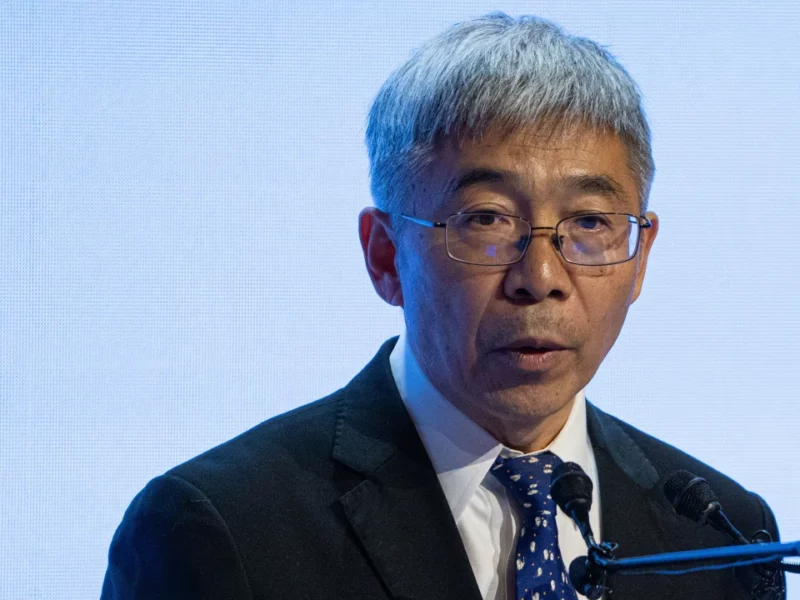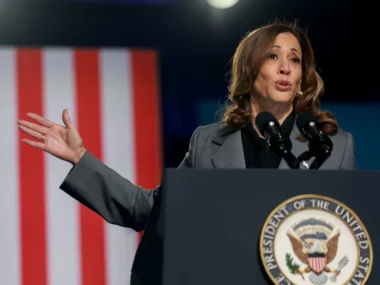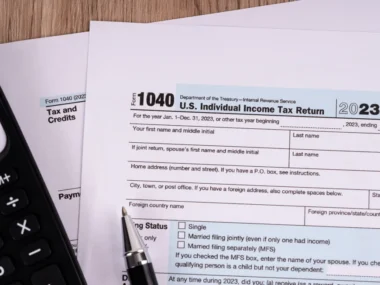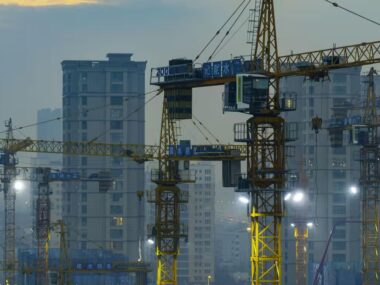Senior Chinese officials have defended the status of the world’s second-largest economy at a conference held in Hong Kong, reassuring global financiers not to be overly concerned about China’s prospects, despite an uneven recovery and challenges in the property market.
In a pre-recorded message, Vice Premier He Lifeng informed an audience of international CEOs that China remains on course to meet its growth target of approximately 5% for the year. He framed this as a much-needed boost for the global economy, emphasizing, “Since the beginning of the year, China’s economy has been generally improving. It will undoubtedly inject fresh positive momentum into the global economic recovery.”
China’s economy experienced a robust start to 2023 following three years of COVID-19 restrictions, but its recovery lost momentum in the second quarter. It is currently facing various challenges, including subdued consumer spending, a deepening property crisis, and reduced foreign investment.
Following the virtual message, an in-person panel of officials, including Zhang Qingsong, deputy governor of the People’s Bank of China, argued that despite recent challenges, China’s economy remains in good condition. Zhang humorously addressed concerns, stating, “Global investors have some concerns about China’s economy, including the pace of economic recovery, problems with property markets, and local government debt. You may ask me, ‘Are you worried?’ No, not always. Not too much.” His response elicited laughter from the audience.
In an effort to strengthen his argument, Zhang presented a series of slides highlighting key aspects of China’s economic strength. He pointed out that China boasts a working-age population exceeding 900 million, a substantial investment in research and development (ranking second globally), and a well-established history as a major exporter.
Zhang assured the audience, which included top executives from firms like Goldman Sachs, Citi, and Morgan Stanley, that “The potential of the Chinese economy remains promising.” He emphasized that despite heightened global uncertainty, the foundation of China’s economy has remained “stable” when viewed from a long-term perspective. He also downplayed concerns about China’s government debt, noting that its current level, at 79.4% of gross domestic product (GDP), is in line with international averages and is “much lower” than that of other major economies.
Official data released last month indicated that in the third quarter, China’s economy regained some momentum, with GDP increasing by 4.9% compared to the previous year.
The recent data has sparked renewed optimism among some observers. The International Monetary Fund (IMF) raised its economic outlook for China, now projecting GDP growth of 5.4% in 2023 and 4.6% in 2024. These figures represent a 0.4% increase from previous forecasts and reflect the stronger-than-expected third-quarter data, as well as recent government measures aimed at stimulating economic activity, as stated by the IMF.
However, the recovery seems to be uneven. Trade data released in October painted a mixed picture, with exports declining by 6.4%, which was considerably worse than the expected 3.3% drop. This marked the sixth consecutive monthly decline in exports. On the other hand, imports exceeded expectations, showing growth for the first time in eight months, with a 3% increase.
Despite these positive indicators, China’s property sector, responsible for as much as 30% of GDP, continues to be a drag on the economy due to a slump in home sales and financial constraints.
Zhang acknowledged these concerns but attempted to downplay them, describing the situation as a process of “natural selection.” He suggested that it is normal for the industry to experience ups and downs after years of continuous expansion.

A conversation regarding China took place at the Global Financial Leaders’ Investment Summit in Hong Kong on Tuesday.
Zhang mentioned, “Like in other industries, the rapid growth of the property sector cannot be sustained. And sometimes, the supply and demand will experience a major shift, and some correction may follow.”
To stabilize the industry, the government has introduced various policy measures throughout the year, while also ruling out some. These measures include the construction of dual-purpose facilities in urban areas, accelerating renovation projects in major cities, and increasing the construction of rental homes, all of which are expected to stimulate economic activity.
He concluded by stating, “Therefore, we’re quite optimistic about the future of China’s property market.”
Wang Jianjun, the vice chairman of the China Securities Regulatory Commission, the country’s top securities regulatory body, echoed the positive sentiments. He affirmed that his colleagues had assured that all the concerns related to China had been addressed.
Looking ahead, the government intends to facilitate the listing of mainland Chinese companies’ shares in Hong Kong. Additionally, there are plans to “deepen and optimize” the use of Stock Connect, a trading link that provides international investors with access to mainland China’s shares via Hong Kong. Wang mentioned that the specifics of these plans were still being worked out.
China has recently relaxed restrictions on the proportion of shares in Chinese companies that can be owned by foreign entities and has also granted financial licenses to more wholly foreign-owned companies, Wang highlighted.
He emphasized, “At the moment, the mainland [Chinese] capital market is full of opportunities. If you get on this train, then you will certainly [succeed].”











